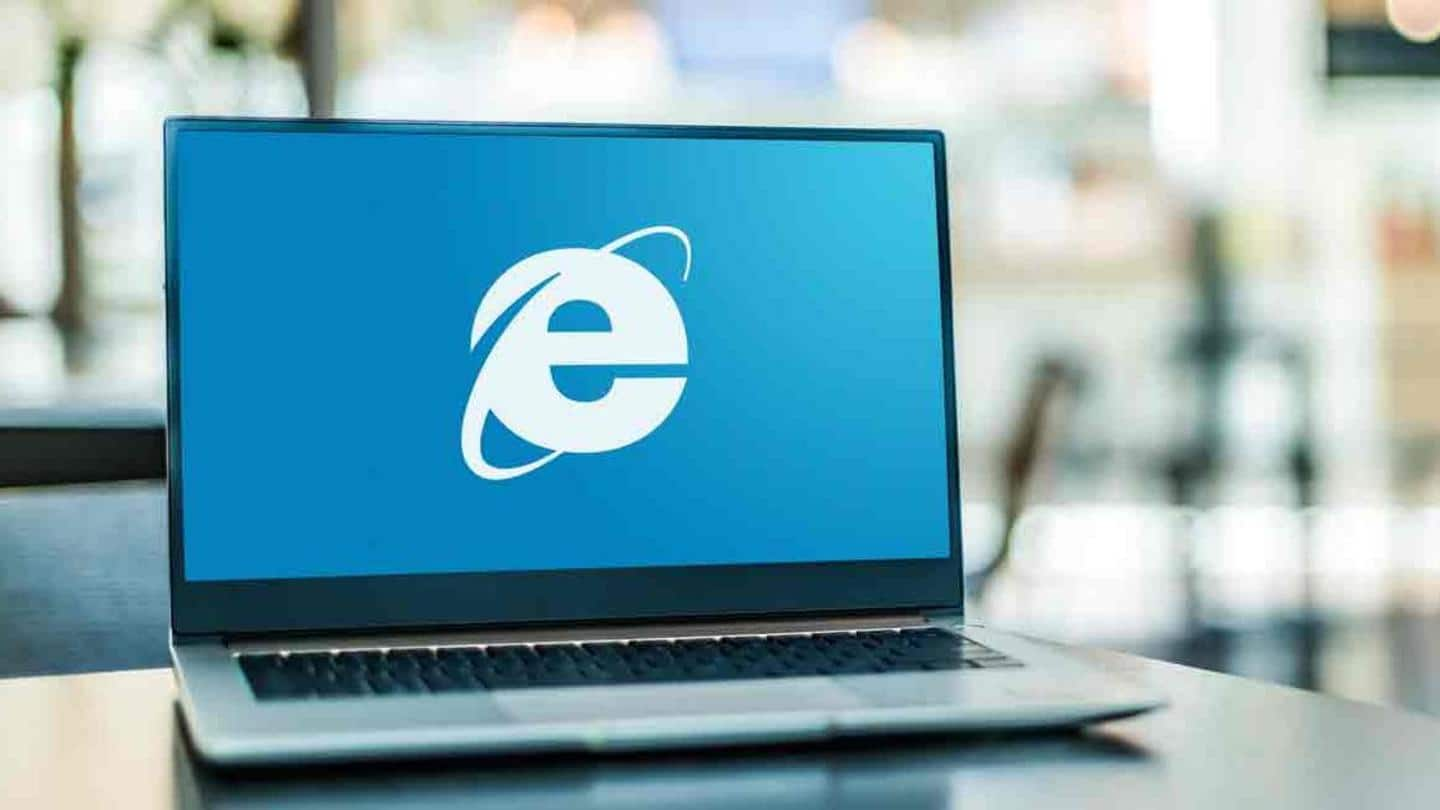
#EndOfAnEra: After 27 years, Microsoft ends support for Internet Explorer
What's the story
Internet Explorer, Microsoft's 27-year-old iconic browser, is finally bidding adieu.
There was a time when the blue 'e' with an orbit around it was the gateway to a world of information, but it has been obsolete for a while.
From today, Microsoft will not offer support for the browser which was launched as an add-on for Windows 95 in 1995.
Context
Why does this story matter?
Nostalgia is a fickle thing. It can make the things we hated the most once very lovable.
We all remember those days with dial-up modems and ever-loading Internet Explorer. The former now belongs in history's trash can and the latter is all set to join it.
Whether we remember it fondly or otherwise, IE will always have its place in the internet history.
Beginning
Internet Explorer had 95% market share in 2003
Internet Explorer was launched in 1995 as an add-on for Windows 95. It soon became people's go-to choice for browsing the internet.
In 2003, IE hit its peak with a market share of 95%, sending its rival Netscape Navigator to the shadows. The main reason for its success was that it was the default browser in Microsoft Windows.
Decline
Google Chrome overtook Internet Explorer in 2012
Internet Explorer's domination in the market soon began to fade with the launch of Mozilla Firefox in 2002 and Google Chrome in 2008. In 2010, its market share fell below 50%.
Two years later, Google Chrome overtook Internet Explorer to become the most used web browser. Its market share has steadily declined since then, and it's below 1% now.
Internal struggles
Microsoft hasn't released major upgrades for IE since 2016
While its life was made miserable by other browsers externally, things weren't looking so bright for Internet Explorer internally either. Internet Explorer 11, released in 2013, remains the last version of the browser.
Since 2016, Microsoft hasn't made any major upgrades to it. With the initial release of Microsoft Edge in 2015, the writing was on the wall for Internet Explorer.
Official words
Microsoft thanked everyone for supporting IE over the years
June 15, 2022 will be remembered as Internet Explorer's official demise, but it is clear that this has been in the making for a long time.
The company said, "We can't thank everyone enough for supporting Internet Explorer over the years. Many people and organizations around the world have depended on IE to support them as they've learned, grown and conducted business online."
Twitter Post
Other browsers paid their respects to an all-time great
Say goodbye to the ever great Internet Explorer this June.🕊️ pic.twitter.com/E5BMHcByiv
— DeepCool (@Deepcoolglobal) May 31, 2022
New version
Microsoft sees Edge as the future
Microsoft Edge, Internet Explorer's replacement, comes with a built-in IE mode, which will help users access legacy websites and applications.
"Not only is Microsoft Edge a faster, more secure and more modern browsing experience than Internet Explorer, but it is also able to address a key concern: compatibility for older, legacy websites and applications," said the company about Edge.
Phasing out
Internet Explorer will be completely phased out in 2029
In a technical FAQ, Microsoft has made it clear that Internet Explorer 11 will be redirected to Microsoft Edge in both supported and unsupported versions of Windows 10.
The company has not advised uninstalling IE completely, as that would lead to the non-functioning of the IE mode on Edge.
IE will be completely phased out by September 1, 2029 for all existing Windows platforms.
Twitter Post
90s internet users bid a tearful goodbye to IE
ProductHunt: After 27 years of service, Microsoft is going to retire Internet Explorer for good on June 15th. pic.twitter.com/EEpvrx34FQ
— ProductGram (@ProductGrams) June 12, 2022